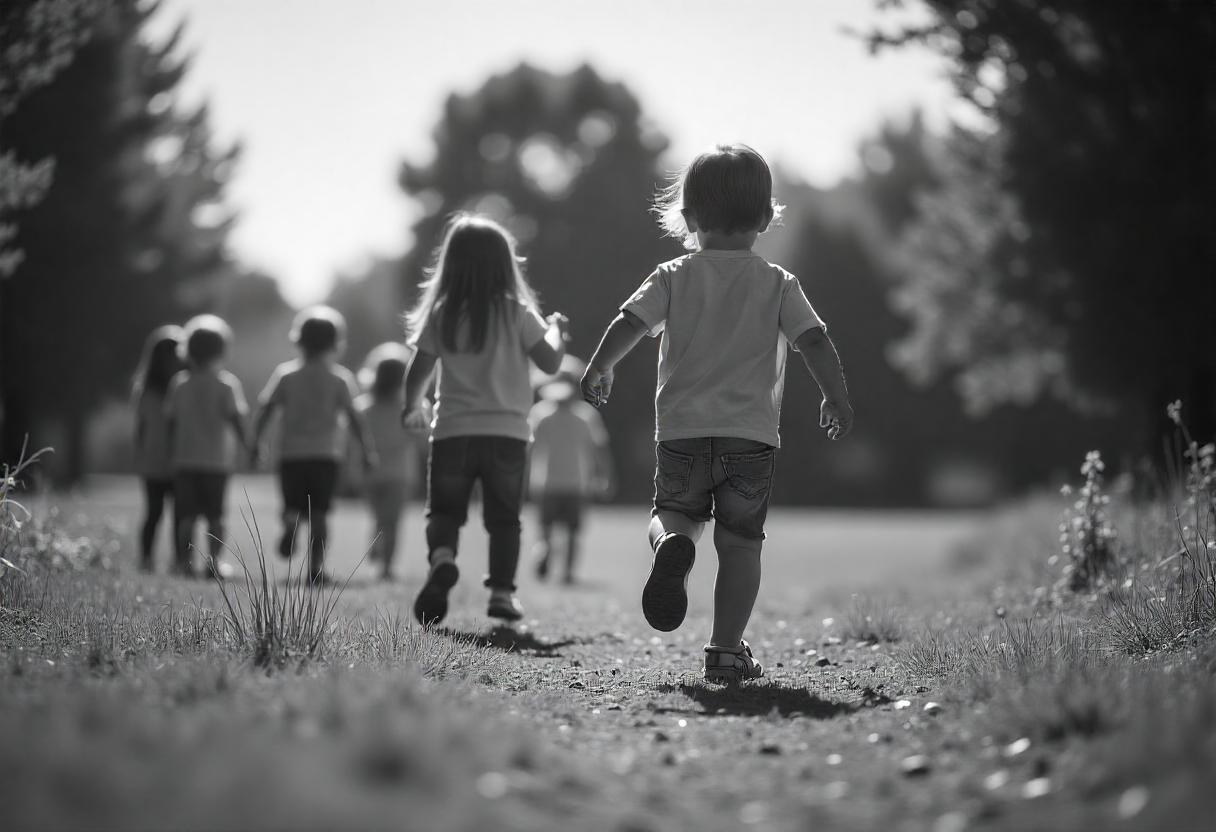In today’s digital age, children spend more time indoors than ever before, often engaged in screen-based activities. While technology offers many learning opportunities, too much indoor time can limit a child’s physical activity and social interactions. Encouraging outdoor play is essential for promoting child physical development, enhancing mental well-being, and improving overall health. From running and climbing to imaginative play, outdoor activities offer a wealth of benefits that support a child’s growth.
Physical Benefits of Outdoor Play
One of the most significant outdoor play benefits is its role in physical health. Active play strengthens muscles, improves coordination, and boosts overall fitness. Unlike structured indoor activities, outdoor play allows children to move freely and engage in exercises that promote long-term health.
1. Improves Motor Skills
Outdoor play involves running, jumping, climbing, and balancing—all of which help enhance fine and gross motor skills. These activities improve coordination and strengthen muscles, promoting child physical development.
2. Encourages a Healthy Weight
With childhood obesity rates on the rise, regular outdoor play helps children stay active and maintain a healthy weight. Running, cycling, and playing sports burn calories and build endurance, reducing the risk of obesity-related health problems.
3. Strengthens the Immune System
Spending time outdoors exposes children to fresh air and sunlight, which boosts vitamin D levels. Vitamin D is essential for bone growth and immune function, helping prevent illnesses and supporting overall well-being.
4. Enhances Cardiovascular Health
Activities like jumping rope, playing tag, and biking improve heart health by increasing blood circulation and lung capacity. Encouraging active play for kids from an early age helps establish healthy exercise habits for life.
Mental and Emotional Benefits of Outdoor Play
Beyond physical benefits, outdoor activities significantly contribute to mental health in children. Nature and play environments provide stress relief, enhance cognitive function, and promote emotional well-being.
1. Reduces Stress and Anxiety
Spending time outdoors has a calming effect on children, reducing stress levels and improving mood. Nature-based activities, such as hiking or playing in a park, lower cortisol levels and promote relaxation, leading to emotional well-being in kids.
2. Improves Focus and Cognitive Skills
Outdoor play encourages problem-solving, creativity, and decision-making. Activities like building forts, exploring nature, or engaging in team games help develop cognitive abilities and improve concentration.
3. Boosts Self-Confidence
Engaging in physical challenges, such as climbing trees or navigating obstacles, helps children gain confidence in their abilities. Overcoming challenges outdoors builds resilience and a sense of accomplishment.
4. Supports Emotional Regulation
Unstructured play allows children to express emotions freely, whether through imaginative games or active movement. This helps them develop coping mechanisms and regulate emotions in a healthy way.
Social Benefits of Outdoor Play
Outdoor activities provide an excellent opportunity for children to interact with peers, fostering essential social skills. Playgrounds, parks, and open spaces encourage teamwork, communication, and cooperation.
1. Develops Social Skills
Engaging in outdoor group activities, such as playing soccer or tag, teaches children important social skills. Taking turns, sharing, and working as a team all contribute to healthy peer relationships and social skills through play.
2. Encourages Cooperation and Teamwork
Many outdoor games require collaboration, helping children understand the importance of teamwork. Whether building a sandcastle or playing a team sport, these interactions strengthen their ability to cooperate with others.
3. Enhances Communication Skills
Outdoor play fosters verbal and non-verbal communication. Negotiating game rules, solving conflicts, and expressing ideas during play improve language development and interpersonal skills.
4. Promotes Empathy and Inclusion
Playing with a diverse group of children encourages empathy and understanding. Kids learn to respect differences, share experiences, and develop friendships, contributing to a more inclusive mindset.
The Role of Nature in Child Development
Exposure to nature has profound effects on children’s mental and physical health. Nature and child development go hand in hand, as natural environments encourage curiosity, exploration, and mindfulness.
1. Stimulates Creativity and Imagination
Playing in nature provides open-ended possibilities for imaginative play. Whether pretending to be explorers, creating nature-inspired art, or playing hide-and-seek, outdoor environments encourage creativity.
2. Strengthens the Connection to the Environment
Children who spend time outdoors develop a deeper appreciation for nature. Learning about plants, animals, and ecosystems fosters environmental awareness and responsibility.
3. Enhances Sensory Development
Natural settings provide diverse sensory experiences, from feeling the texture of leaves to listening to birds chirping. These experiences enhance sensory processing and cognitive function.
Encouraging Outdoor Play in Everyday Life
Parents and caregivers play a crucial role in promoting outdoor activities. Here are some practical ways to incorporate outdoor play into daily routines:
✔ Schedule Daily Outdoor Time – Aim for at least 60 minutes of outdoor play each day.
✔ Plan Family Outdoor Activities – Hiking, biking, and nature walks are great ways to encourage movement.
✔ Create a Safe Play Environment – Provide a backyard play area or visit local parks regularly.
✔ Limit Screen Time – Encourage children to play outside instead of spending long hours on electronic devices.
✔ Join Community Sports or Playgroups – Enrolling children in outdoor sports fosters social interaction and physical fitness.
Final Thoughts
Outdoor play is essential for child physical development, mental health in children, and overall well-being. Engaging in outdoor activities for children promotes stronger muscles, better focus, emotional resilience, and improved social skills. By encouraging active play for kids, parents can help them develop lifelong healthy habits and a deep connection with nature.
Prioritizing outdoor time not only enhances physical and mental health but also supports social skills through play and fosters emotional stability. In today’s fast-paced world, where concierge medicine focuses on personalised healthcare, incorporating outdoor activities into daily routines can be a proactive approach to overall well-being. Encouraging children to step outside, explore, and play freely is one of the best investments in their future health and happiness.




